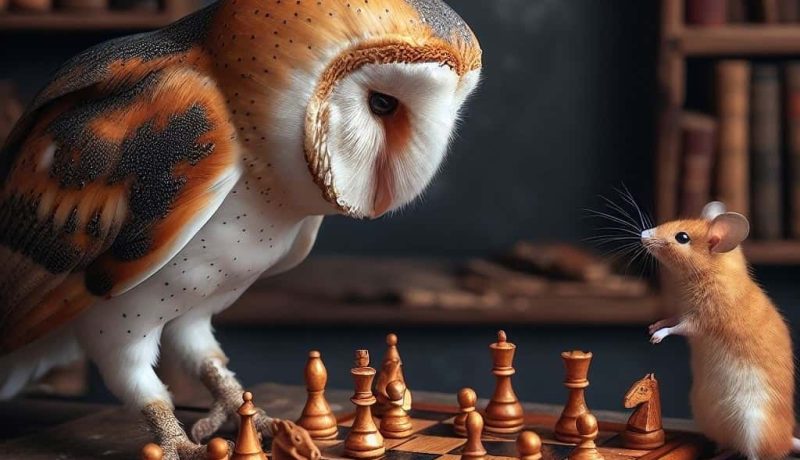
Why do Female Barn Owls snatch prey from their Mate?
Last Update:
May 28, 2025

When you watch a female barn owl incubating her eggs and being fed prey by her mate, why do the females seem to snatch the prey from the male so aggressively?
In short, it’s not the female being aggressive but a strategic move to secure her food and increase the chances of raising her brood.
To answer this question in more detail, consider how long the female is effectively locked down to the nest. From the moment the female Barn Owl lays the first egg, the process of incubation begins. The female is confined to the nest area for typically 45 days or more, depending on how many owlets hatch. During this time, she and her brood rely entirely on the male barn owl for food in the form of prey delivered to the nest.
When the male arrives, the female is seen to snatch the prey ‘aggressively’ from the male. In reality, it isn’t an aggressive move, more a functional one. It ensures a rapid transfer of food to the female to maintain her own energy needs and for her to provide vital nutrition to the owlets. She’s also aware that the male may eat it (which they occasionally do), so she quickly needs to gain ownership of the food, often reserving it for a next-day meal.
Other aspects of this prey snatching are related to the pair bonding. A male Barn Owl consistently providing food for the family will reinforce the female’s opinion that he is a trusted and reliable provider. This goes a significant way towards strengthening the bond between the pair.
The male’s significant contribution in terms of hours spent hunting for prey, alongside the female’s dedication to the month-long incubation and subsequent brooding, clearly demonstrate their commitment to raising a family and reinforcing the pair’s bond.
Barn Owls often mate after the male delivers prey to the nest, which is a crucial part of their bonding. Once the eggs have hatched and the nest is busy with hungry owlets wanting to be fed, the mating declines and finally stops.
Please share this article if you like it!
Our site uses cookies. By using this site, you agree to the Privacy Policy and Terms of Use.